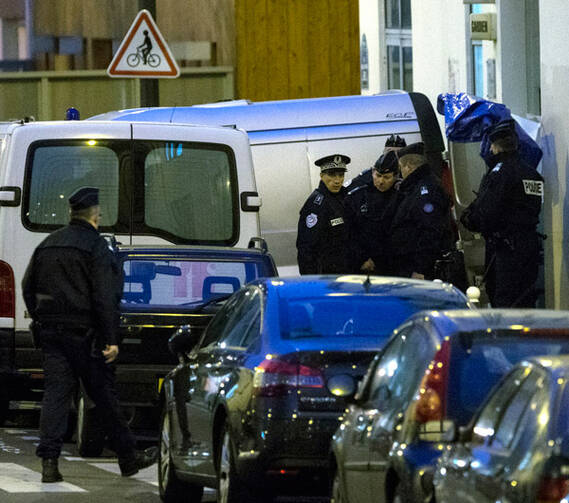Paris is only minutes over a couple of hours from London, by express Eurostar train through the Channel Tunnel. London experienced its own day of terror in July 2005; a day that has, like 9/11, become commonly known here as 7/7. Then, as now in London, the horror of the violence—"how could that happen here?"—was intensified when it emerged that the perpetrators were all British-born and schooled, rather than foreign insurgents.
Yet this awareness did not then pre-empt a surge of vilification towards all Muslims as if somehow all were collectively responsible for the acts of a few. Responding to the Charlie Hebdo attack, the Muslim Council of Britain quickly issued an unequivocal press statement, including this from the Council’s Secretary-General, Dr. Shuja Shafi: "Those who have killed in the name of our religion today claim to be avenging the insults made against Prophet Muhammad, upon whom be peace. But nothing is more immoral, offensive and insulting against our beloved Prophet than such a callous act of murder." Yet it's known that at least several hundred young people, male and female, British-born and carrying U.K. passports, have gone to join ISIS in Syria and Iraq. One of the Paris murderers, it is emerging, may have trained with Al Qaeda in Yemen. As in France, the attraction of radical Islam to disaffected youth is worrying many people here.
Verbal attacks on Islam are once again in plentiful evidence. In some quarters, the part is once again being taken for the whole. It’s usually ignorance that generates such unjustified synecdoche. All of Islam is being tasked with dissociating itself from the actions of a few. The Paris attacks, claiming to have “avenged the Prophet,” are sectarian, not religious. Some voices place a similar burden on all of theism, as if somehow the god whose existence they reject was nonetheless responsible for the horror, rather than the human murderers.
It’s easy to attack theism and religion (not synonyms) if one doesn’t bother to understand theology or what people of faith really believe. To take the actions of a minority and apply them to the whole verges on bigotry. Such anti-theistic fundamentalism, untroubled by any real intellectual basis or even much thought, increasingly matches the warped fundamentalism of the perpetrators. The extremists want to say that the whole West is at war with Islam, but mainstream Islam will have none of that. At the same time the rise of the radical Right in Europe gathers pace (although these groups cannot necessarily be all lumped together neatly either). In Britain, a poorly-timed but opportunistic comment by the leader of the rapidly-rising far-right U.K.I.P. (U.K. Independence Party), to the effect that policies promoting multiculturalism are the cause of the violence, was roundly condemned, but the damage had been done.
News reports and U.K. Government information, almost certainly carefully-controlled, suggest that a certain number of spectacular, murderous outrages have been avoided in recent months thanks to the vigilance of the security agencies. Yet the Head of MI5 (the U.K.’s domestic counter-intelligence and security agency), calling for new powers to combat Islamic extremism, has this week warned that new attacks are highly likely and that his agency cannot guarantee to prevent them. In the same speech, the Director-General claimed that MI5’s work had been undermined by the Snowden revelations about government collection of personal date.
The delicate balance, in a mature society, between freedom of expression and the collective need for security is once again under discussion. This weekend, London is, unlike Paris, not a city under lock-down; this busy city remains vibrant, if cautious. We do not have tanks on Trafalgar Square. But there can hardly be a single soul on the Tube or atop a red bus who does not, even more this week, feel a little bit more anxious about the possibility of another 7/7 or our own Charlie Hebdo attack. "Je suis Charlie" on button-badges and social media profiles may yet take on an unintended, grisly new meaning.








